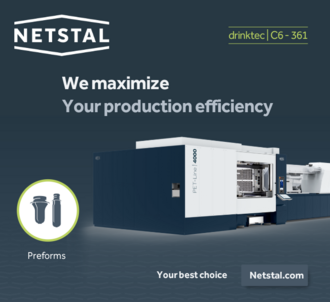Construction completed, installation to commence on fully-integrated development and testing facility on plan to be operational in 2016.
Anellotech, a sustainable technology company focused on producing cost-competitive renewable chemicals from non-food biomass, today announced that the Company has entered into the next phase of its strategic partnership with Suntory Holdings Limited, one of the world’s leading consumer beverage companies. Suntory’s diverse market-leading beverage brands include Orangina, Schweppes, Ribena, Lucozade and BRAND’S, as well as major alcohol brands, Yamazaki, Hibiki, Jim Beam, Courvoisier, and Château Lagrange.
The partnership, which began in 2012 under a collaboration agreement that has provided more than $15 million in funding to date, is focused on advancing the development and commercialization of cost-competitive 100 percent bio-based plastics for use in beverage bottles as part of Suntory’s commitment to sustainable business practices. Suntory currently uses 30 percent plant-derived materials for their Mineral Water Suntory Tennensui brands and is pursuing the development of a 100 percent bio-bottle through this partnership.
The Anellotech alliance with Suntory supports the development of bio-aromatics including bio-paraxylene, the key component needed to make 100 percent bio-based polyester (polyethylene terephthalate, or “PET”) for use in beverage bottles. As an integral component in the bio-based value chain, Anellotech’s proprietary thermal catalytic biomass conversion technology (Bio-TCatTM) cost-competitively produces “drop-in” green aromatics, including paraxylene and benzene, from non-food biomass.
Today’s announcement marks a major milestone in making 100 percent bio-based polyester and bio-based PET bottles a reality. With construction now complete on its new, fully-integrated development and testing facility (TCat-8™), Anellotech is ready to commence installation with groundbreaking scheduled for late January 2016. Operational in 2016, this 25 meter-tall unit will confirm the viability and suitability of the Bio-TCat process for scale-up, and generate the data needed to design commercial plants using Bio-TCat technology. The TCat-8 unit was jointly designed by Anellotech and its R&D partner IFPEN, and will use a novel catalyst under joint development by Anellotech and Johnson Matthey. After verification of the continuous operation of TCat-8, Suntory plans to move ahead with studies to consider the development of the first commercial-scale Bio-TCat plant.
“By focusing on the development of substitute materials to replace petroleum in making everyday consumer products, we are expanding our commitment to reduce the environmental burden of beverage packaging, including reduction of CO2 greenhouse gas emissions,” said Munehiko Takada, head of Packaging Material Development Department at Suntory. “We are pleased with the progress Anellotech and its industry-leading partners have made, which gives us confidence in their ability to develop and commercialize a sustainable and cost-effective process for producing bio-based aromatics.”
Suntory joins Anellotech’s existing partners IFP Energies nouvelles (IFPEN), Axens, Johnson Matthey, and a multinational corporate investor, which has provided a $7 million equity investment, the first tranche of a total $10 million investment.
“We are pleased to enter the next phase of our partnership with Suntory and further advance our technology to meet growing consumer demand for products and packaging made from sustainable sources,” said David Sudolsky, President and CEO of Anellotech. “Anellotech and some of its alliance partners are already doing preliminary work to identify potential feedstocks, sites and operating partners for an initial commercial plant. With Suntory’s focus on bio-paraxylene, Anellotech can now offer a unique opportunity to new partners interested in bio-benzene-chain derivatives. This includes nylon, polycarbonate, linear alkyl benzene for laundry detergent, and styrene for styrene butadiene rubber.”
By starting from cost-advantaged feedstock and employing a solid catalyst in just one fluid-bed reactor, Anellotech’s process can produce the 100 percent bio-based aromatic chemicals that are used to make many significant plastics. By going directly from biomass to BTX in this one reactor, Anellotech does not make a highly-oxygenated bio-oil intermediate product often seen in multi-step pyrolysis processes, and avoids the need to add substantial amounts of costly hydrogen.
The Need for an Alternative
Approximately 54 million metric tons of PET are manufactured globally each year. Despite strong industry demand, there is no commercially-available, bio-based paraxylene on the market today. This has limited the ability to make 100 percent bio-based PET at commercial scale. By using Bio-TCat technology, Anellotech and its partners are accelerating the development of bio-based paraxylene and other widely-used chemicals including benzene, toluene and other xylenes (commonly known as BTX) from non-food sources. This will allow for the first cost-effective production and commercial realization of 100 percent bio-PET bottles for consumer use.
The ultimate competitive advantage of Bio-TCat over fermentation-based technologies is derived from Anellotech’s use of a simple process performed in one reactor-catalyst system. Other than biomass and catalyst, there are no further inputs, apart from minor amounts of hydrogen used downstream of the reactor to remove trace impurities prior to further separation of the BTX. As a result, these bio-based aromatics can be sold profitably against their identical, petroleum-derived counterparts. Furthermore, because it uses renewable and abundant non-food feedstocks, such as wood, corn stover and bagasse, the Bio-TCat process is less expensive compared to those that use sugar-based feedstock, and avoids competition with the food chain.





